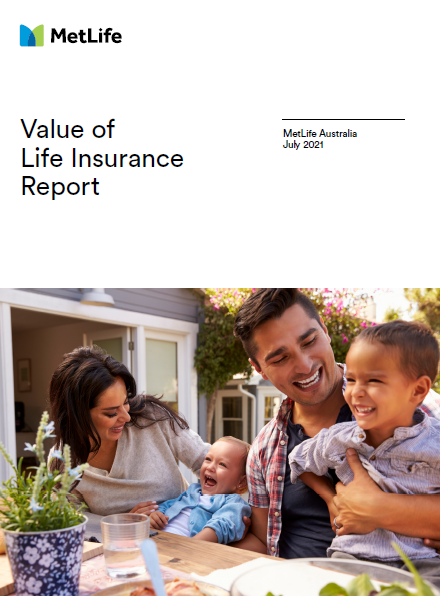Fewer advisers will place a greater burden on Australia’s welfare system, according to MetLife’s Chief Distribution Officer Michael Mulholland.
In discussing the value of life insurance Mulholland says the reducing number of advisers means less life insurance and hence a greater burden on Australia’s welfare system.
He says a lack of advisers is an issue for the industry, the economy and society at large.

In July the insurer released its Value of Life Insurance Report, which Mulholland explains includes a section highlighting the benefits of life insurance to taxpayers.
He told Riskinfo the latest Federal budget papers reveal that in 2021-22 social security and welfare remains the largest budget item at $210 billion or 35.6 percent of the total budget.
Other points highlighted in the report include:
- Rice Warner calculates that under-insurance costs the Government $57 million for life insurance, and $1.26 billion for TPD. People without life cover or who are under-insured are more likely to draw on welfare payments, increasing costs to taxpayers
- At present, there are approximately 750,000 people receiving disability benefits in Australia with the Government paying out $16.5 billion annually
- Life insurance provides an alternative, self-funded source of support for people and therefore can have a direct impact by reducing welfare costs.
- One of the knock-on effects of rehabilitation services provided by life insurers is the reduced burden on Government to provide social security and other Government funded support services
Mulholland says on top of this, Australia is dealing with a global pandemic and the estimated mental health bill of $60 billion cited in the report is only going to rise.
…the key message he hears from advisers is the need to demonstrate the value of life insurance…
He says the lack of advisers and the slow decline in numbers over some years has started to accelerate, to the point where there are not enough advisers. With fewer advisers he says the government and taxpayer will ultimately fund the increasing welfare burden.
“Normal working mums and dads are really going to need advice and cost-effective advice; and we need people to deliver that,” said Mulholland.
He told Riskinfo that the key message he hears from advisers is the need to demonstrate the value of life insurance.
Mulholland says advisers see the value life insurance delivers to their clients and “…this report is the first stage of getting the facts and figures and dataset to make informed decisions going forward and help Australians get proper advice.”
He adds a part of that is rebuilding the pool of financial advisers and for businesses to recruit a new generation of financial advisers.
“And that means looking at the economics of the business model.” Whether they are paid by commissions or through fees for service, advisers need to be paid for the work they do.
…it’s “incredibly important” advisers are supported and their business models supported
He says it’s “incredibly important” advisers are supported and their business models supported to ensure businesses can replenish their numbers, noting that recruitment and training costs money, as does the need to ensure new advisers are fully compliant.
Asked what MetLife itself is doing he points to The Value of Life Insurance Report being part of its contribution along with services such as its 360Health service offer.
The insurer says it is also talking to regulators, the Government and industry bodies ensuring the message gets out.
Mulholland notes that insurers across the industry are all in agreement that there are not enough advisers coming through and, whether it be through commissions or fee-for-service, advisers need to be paid appropriately to be able to recruit new advisers.
“It is not for us to preach what the best form of payment is. We just want to make sure that advice is not only cost effective for clients; but is sustainable for the financial planning practice itself.”
So what will happen if we continue to see fewer advisers and greater levels of under insurance?
Mulholland says it means more welfare and disability payments that Government needs to cover and as we come out of the pandemic there are going to be societal impacts.
He states that life insurance is the bedrock of financial services. “It’s a core service we are talking about here” and to expand it further, “…we need lots of advisers to service the working people of Australia.”
Click here to download the Value of Life Insurance Report.





With respect Michael, you haven’t mentioned the main reason for the declining adviser numbers, which is over-regulation. Furthermore, a 60% upfront commission (which in reality is less when taking into account the 7% loading and stamp duty), does not cover the costs to get business on the books. Again, these costs, as advisers well know, have only increased due to over-regulation. You mention that MetLife is speaking to regulators, the govt, etc, to get the message across, however will you please elaborate and state exactly what message is you are communicating to these bodies. Are you fighting to have commission increased to 80%? To rid the industry of this FASEA degree requirement for all existing advisers?
Personally, my main concern is that the retail life insurance companies are still not really getting it. They seem to have finally accepted that commissions must remain, but they’re still maintaining the 60/20 split, which simply won’t cut it as stated. As for the regulatory burden, they are telling advisers to just accept it. And yet the adviser numbers are in decline, and they probably wonder why…
Even at 80/20 the cost of regulation/compliance will stop advisers from writing new business, its just not worth the effort. But NO one is listening, advisers are voting with their feet and are leaving and no manner of spin can change this. The Life Insurance Reforms were not reforms but a death sentence to non aligned advisers and now that the banks have left the game insurers have got what they wanted, Robo & Direct.
Comments are closed.